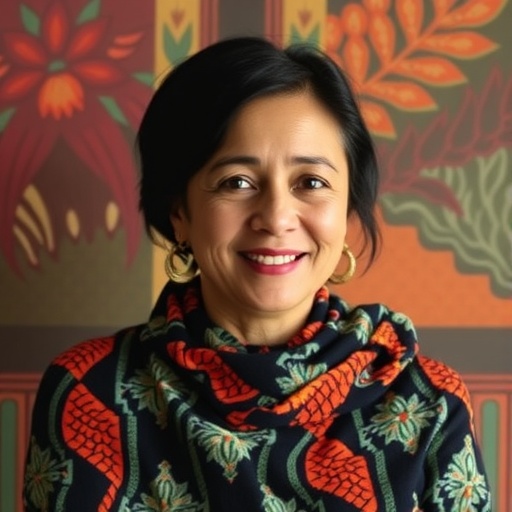In a groundbreaking exploration of educational paradigms, a recent article by M. Zembylas dives into the concept of “world-traveling” and its significant implications for decolonial aesthetics within the realm of higher education. Central to this discussion is the influential figure of María Lugones, a writer and activist whose contributions are pivotal for understanding how institutions can forge deep coalitions aimed at decolonization. Zembylas’s work sheds light on the necessity of incorporating diverse voices and perspectives in academia, addressing critical issues related to colonial legacies that persist in educational systems today.
The notion of “world-traveling,” as Zembylas describes it, goes beyond mere geographical mobility or cultural exchange. It encompasses an empathetic engagement with different worldviews, enabling individuals to step outside their own contexts and appreciate the rich tapestry of global experiences. This approach highlights the importance of relationality and mutual respect in fostering meaningful dialogues among scholars, practitioners, and students. By embracing world-traveling, higher education can become a transformative realm that not only disseminates knowledge but also nurtures the understanding of varied cultural narratives.
Zembylas provides a thorough analysis of Lugones’s writings, emphasizing her call for deep coalitions that transcend disciplinary and institutional boundaries. Lugones advocates for a collaborative approach that seeks to dismantle the oppressive structures often inherent in academia. Through her poetry and prose, she encourages scholars to engage with marginalized perspectives, thereby creating an inclusive environment that honors the multitude of voices present in learning spaces. This approach resonates with contemporary movements calling for equity in education and challenges the Eurocentric narratives that dominate many curricula.
The article elaborates on how Lugones’s literary contributions serve as a catalyst for change in higher education. Her work not only critiques coloniality but also provides frameworks for understanding the complexities of identity and power dynamics. Zembylas illustrates the potential for Lugones’s decolonial aesthetics to inform pedagogical practices that prioritize social justice and cultural relevance. This infusion of decolonial thought into higher education can empower students and educators alike to rethink established norms and practices.
Zembylas argues that the process of decolonization in education requires a profound shift in how we perceive knowledge itself. The prevailing epistemological frameworks often prioritize Western ways of knowing, sidelining indigenous and non-Western epistemologies. By advocating for a reconfiguration of these knowledge systems, especially through world-traveling, Lugones’s insights provide a pathway toward a more equitable educational landscape. This shift not only encompasses curriculum changes but also calls for institutional reforms that value diverse epistemic contributions.
The concept of “aesthesis,” as addressed by Zembylas, refers to a heightened awareness of sensory experiences and the ways in which they shape our understanding of the world. In the context of Lugones’s writings, this notion encapsulates the experiential learning that occurs when individuals engage with different cultural practices and perspectives. By integrating aesthetic experiences into educational settings, institutions can cultivate an environment where students are encouraged to think critically about their own positionalities and the broader socio-political contexts in which they operate.
Zembylas’s article points to the role of educators as facilitators of this decolonial process. They are urged to adopt pedagogical strategies that encourage students to grapple with challenging ideas, confront their biases, and collaborate across differences. This active engagement is crucial in cultivating a classroom atmosphere conducive to exploration and transformation. Through reflective practices and dialogic learning, educators can help students develop the critical consciousness necessary for understanding the complexities inherent in global education.
Furthermore, the article emphasizes the importance of institutional support in actualizing the principles of world-traveling and decolonial aesthetics. Higher education institutions must commit to fostering environments that encourage collaboration, innovation, and inclusivity. This commitment should be reflected in policies, funding allocations, and program developments that prioritize diverse perspectives and address systemic inequalities. Zembylas calls for a collective effort from administrators, faculty, and students to create a robust framework for change that can influence the entirety of the educational experience.
The intersection of decolonial aesthetics and higher education is not merely an academic concern; it resonates with broader societal movements advocating for justice and representation. Zembylas argues that educational institutions have a unique obligation to lead by example, promoting critical dialogues that challenge the status quo. By engaging with various cultural narratives and fostering partnerships with underrepresented communities, higher education can play a vital role in advancing social change.
Throughout the article, Zembylas presents compelling evidence drawn from both theoretical frameworks and empirical studies that underscore the importance of embracing decolonial aesthetics in educational settings. The reflections on Lugones’s work serve as a call to action for educators and scholars to immerse themselves in the rich histories and experiences that continue to shape global education. Through this immersion, they can better equip their students to navigate an increasingly interconnected world.
In conclusion, Zembylas’s exploration of world-traveling, through the lens of María Lugones’s contributions, offers a powerful narrative for the decolonization of higher education. The insights presented in this article advocate for a transformative shift in consciousness within academic communities, emphasizing the need for deep coalitions that advocate for justice and equity. By embracing the principles of decolonial aesthetics, institutions can create pathways for meaningful engagement and transformation, ultimately enriching the educational experiences of all students.
In a world increasingly characterized by diversity, the call for higher education to engage in decolonial practices has never been more pertinent. Zembylas’s analysis not only highlights the theoretical underpinnings of this movement but also provides actionable insights that can inspire educators and leaders to reflect on their roles in shaping inclusive and equitable educational spaces.
Subject of Research: The role of world-traveling and decolonial aesthetics in higher education.
Article Title: World-traveling and decolonial aesthesis: María Lugones’s contributions to building deep coalitions for the decolonization of higher education.
Article References:
Zembylas, M. World-traveling and decolonial aesthesis: María Lugones’s contributions to building deep coalitions for the decolonization of higher education.
High Educ (2025). https://doi.org/10.1007/s10734-025-01515-y
Image Credits: AI Generated
DOI: 10.1007/s10734-025-01515-y
Keywords: decolonization, world-traveling, higher education, María Lugones, deep coalitions, social justice, education reform.




